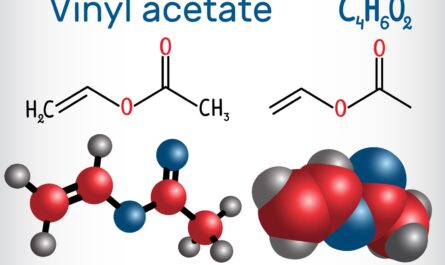Adult bovine serum (ABS) is commonly used in cell culture as a culture medium supplement to support cell growth and proliferation. It contains a variety of growth factors, cytokines, nutrients, attachment factors and proteins that support cell growth and metabolism. ABS is derived from blood collected from adult cattle. Once collected, the blood undergoes further processing steps like centrifugation, filtration and heat inactivation to produce serum that is ready to use in cell culture.
Composition of ABS
ABS is a rich source of nutrients, vitamins, minerals, attachment factors and growth factors that support cells outside their natural environment in culture dishes or flasks. Some of the key components present in Adult bovine serum include:
– Amino acids: ABS provides all 20 standard amino acids that are required for protein synthesis in cells. The most abundant amino acids present include leucine, lysine and glutamate.
– Lipids: Lipids like fatty acids, cholesterol, phospholipids and triglycerides that are vital for cell membrane structure and metabolism are present in serum.
– Vitamins: Fat-soluble vitamins A, D, E and K along with water-soluble B-complex vitamins and vitamin C are present in optimal concentrations.
– Mineral ions: Essential mineral ions required by cells like sodium, potassium, calcium, magnesium, chloride, iron and zinc are abundantly available.
– Growth factors: Important growth factors for facilitating cell proliferation like insulin, transferrin, fibroblast growth factors, epidermal growth factors and transforming growth factors are present.
– Attachment factors: Serum contains proteins like fibronectin and vitronectin that enhance cell attachment to culture surfaces.
– Carrier proteins: Plasma proteins like albumin act as soluble carriers and binding proteins for various vitamins, minerals, lipids and growth factors.
Applications of Adult Bovine Serum in Cell Culture
Due to its rich nutritional composition, ABS is commonly used for culturing a variety of mammalian cell lines. Some key applications include:
– Fibroblast cell culture: ABS at 5-10% concentration is routinely used for culturing fibroblast cell lines involved in skin tissue engineering and wound healing research.
– Endothelial cell culture: ABS supports proliferation of endothelial cell lines from blood vessels that are used to study angiogenesis and vascular biology.
– Epithelial cell culture: Epithelial cell lines from tissues like kidney, lungs and intestines are cultured using ABS supplemented media.
– Stem cell culture: ABS is preferred over FBS for maintaining self-renewal and pluripotency of various adult and pluripotent stem cells in vitro.
– Primary cell culture: ABS allows isolation and initial culturing of primary cell strains directly isolated from tissues before subsequent passaging in serum-free media.
– 3D spheroid culture: ABS enhances aggregation of cells and formation of multicellular spheroids for tumor modeling and organoid culture applications.
Benefits of Using Adult Bovine Serum over FBS
While fetal bovine serum (FBS) remains the gold standard serum, ABS offers certain advantages for cell culture:
– Less batch-to-batch variability: ABS batches are more consistent compared to FBS due to less variability caused by the fetal stage of cattle.
– Reduced risk of contamination: ABS eliminates concerns of fetal calf serum introduction risking transmission of viruses or prions.
– Defined supply source: ABS is sourced only from adult cattle eliminating ethical concerns regarding use of fetal serum.
– Superior maintenance of pluripotency: ABS is better than FBS for long term culturing of stem cells without loss of pluripotency.
– Enhanced cell proliferation: ABS promotes higher cell growth rates compared to FBS, especially for human cell lines.
– Cost-effectiveness: ABS provides a low-cost alternative to specialty serum-free and xeno-free media formulations.
Downsides and Challenges of Using ABS
While ABS offers advantages, it also has certain limitations:
– Limited global availability: Only a few vendors globally produce ABS limiting widespread adoption compared to ubiquitous FBS.
– Variability from vendor to vendor: ABS quality and composition can vary between serum producers affecting reproducibility.
– Potential bovine pathogens: Rare risk of bovine viral pathogens, if contaminated serum is used, especially for human therapeutic applications.
– Labor-intensive production: ABS production requiring slaughter of adult cattle is more complex than fetal bovine serum extraction.
– Poor defined components: Precise growth factors, nutrients and concentrations are less defined than recombinant serum-free formulations.
Adult bovine serum presents as a practical alternative to FBS for cell culture, especially when reproducibility, consistency and animal welfare are priorities. With further standardization and commercialization, ABS usage could surpass FBS in future research applications.
*Note:
1. Source: Coherent Market Insights, Public Source, Desk Research
2. We have leveraged AI tools to mine information and compile it.




